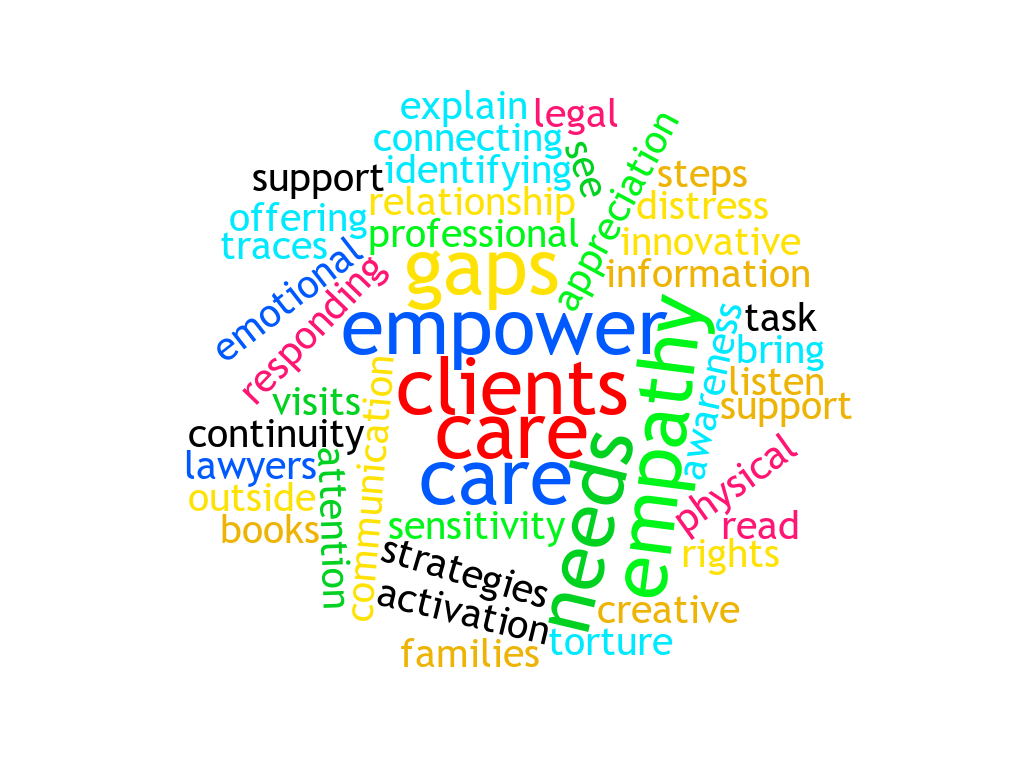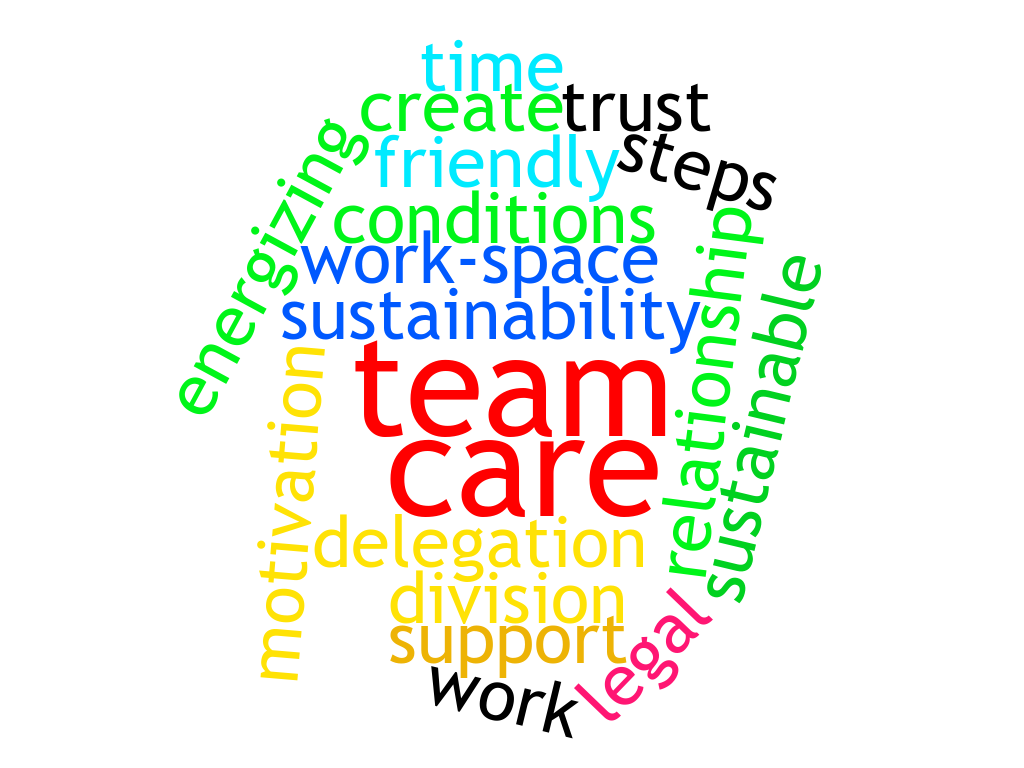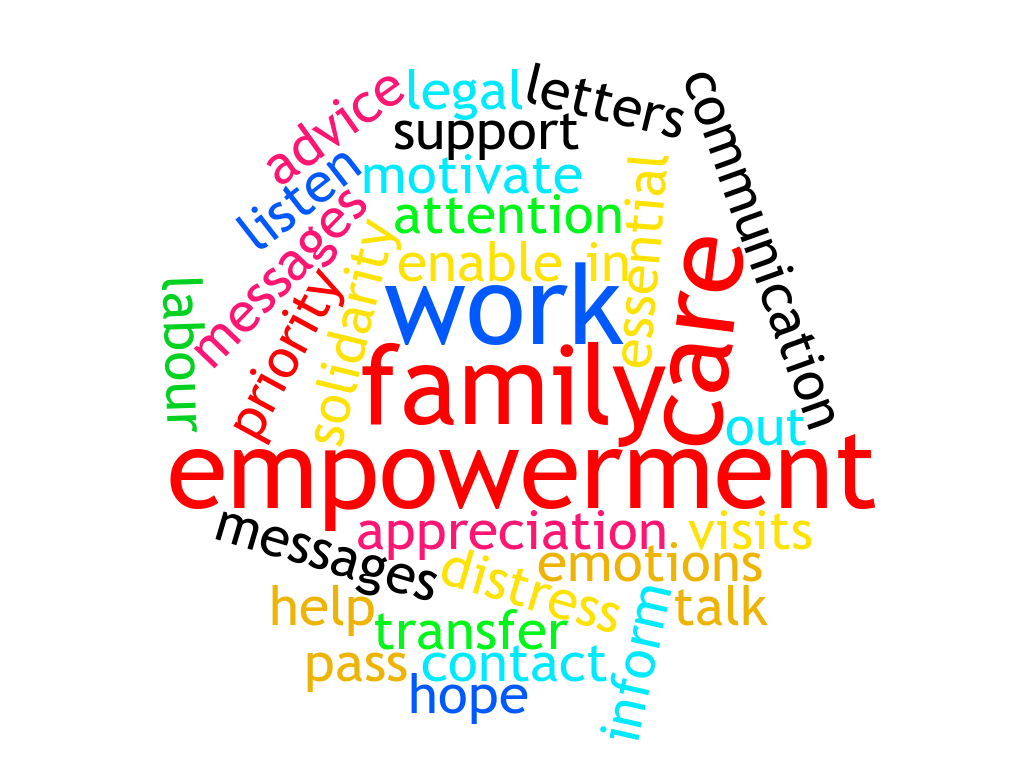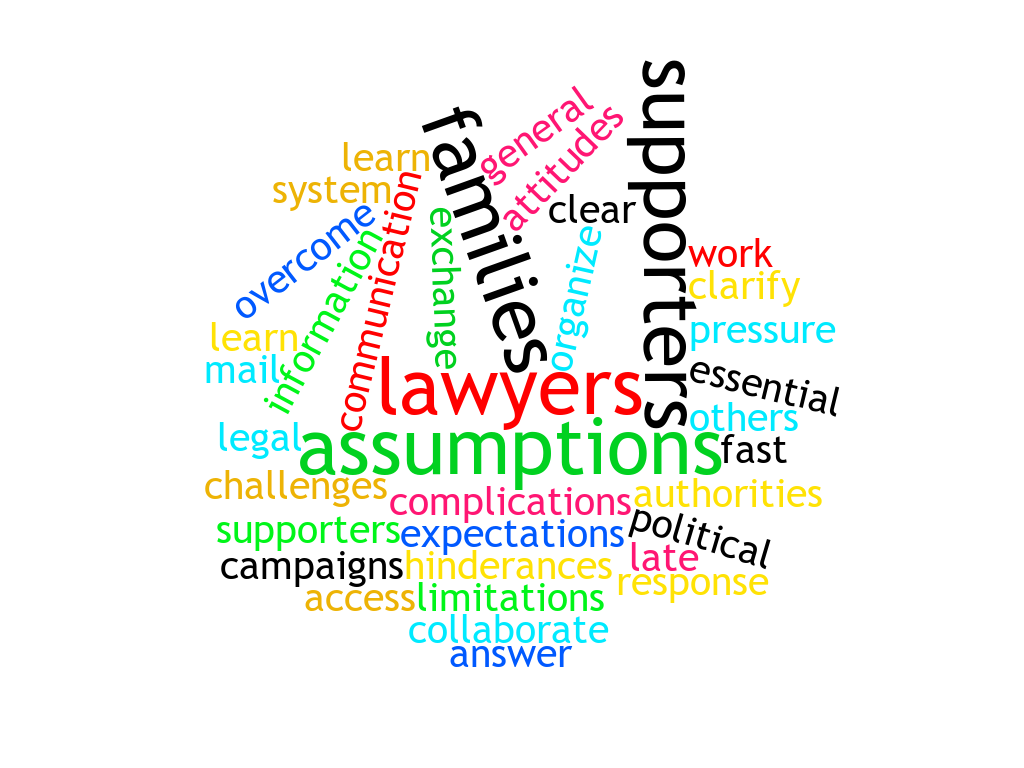
Lawyers
Being the lawyer of a human rights‘ activist who is imprisoned puts you in a complex position. You are not only representing the human rights‘ defender in political terms but take up multiple jobs: you communicate with family and possibly politics, you might be involved in organizing daily necessities, you might be confronted with media, and much more.
In this section, lawyers who have already dealt with such situations have documented their experiences. They share their insights and best practices and offer them to the readers and colleagues. All notes have their own background and history. And yet, they hopefully bring inspiration and ideas to you – on how to adjust them to your specific needs and circumstances.
CARING FOR CLIENTS
Responding to the needs of detainees

Appreciation
Lawyers can help detainees not losing themselves
Emotional and physical distress of the detainee
Understanding the stress of the client, identifying traces of torture
Constant check for the needs of the detainees
Monitoring the well-being of our clients to empower them.
Visiting Strategies
Regular visits as first response
Empowerment and support
Objectives of the visits
What to bring for the detainee
Transfer of books and more
Activating the detainees
Empowerment through shared tasks
Public and open letters
Creating attention and visibility
Connecting detainees to the outside
Establish contact between the clients and their families and friends
Innovative ways of support
Strategies for looking for gaps in the system
Establishing personal work relations
Building empathy and care
Determine the legal strategy
From the arrest warrant to the next steps
Communication with Police and Guards
Polite but clearly enforcing one's rights
SELF-CARE FOR LAWYERS
Caring for your own needs

Breaks. Breaks. Breaks.
Essentials for staying fresh
Justice first
Motivation despite non-functional legal systems
Fleeing into nature
Dealing with own emotions
Sports as part of self-care
Between swimming and yoga, theory and reality
Before you sleep
Removing the thoughts of work
CARE FOR YOUR TEAM
Creating sustainability within your legal team

Team work
Advantages of working in legal teams
Work division and delegation
First team steps
Friendly work space
Creating energizing working conditions
Time management
Caring for our energies
WORKING WITH THE FAMILY OF THE DETAINEE
Caring and communicating with families of your clients

Family contact is essential
Enabling uninterrupted family solidarity
First information to family
Who to inform after the first visit to the detainee
Family visits in prison
Motivate to care in distress
Families: Don't lose hope!
Empowerment and self-care for the families
Appreciation
Family members felt cared for
Family communication
Transfer of letters and messages
Messages in and out
Handling letters, emails and other messages between the detainees and their families and friends
COLLABORATING WITH OTHER LAWYERS AND LEGAL TEAMS
Caring communication and coordination for case collaboration

Trust
Knowing each other
Mutual engagement
Sharing work ethics and attitudes
WHAT TO COMMUNICATE ABOUT YOUR WORK
What your clients, their families and supporters should know about your work.

Our pressures
Why we sometimes respond late ...
Our Challenges
What is complicating our work?
Hinderances
What keeps us from telling all this
Access to general legal information
Chances and limitations of self-informed families and supporters
Fast and correct responses needed
What challenges us sometimes: Difficult collaboration
Supportive campaigns
Pressurizing the authorities
top ^